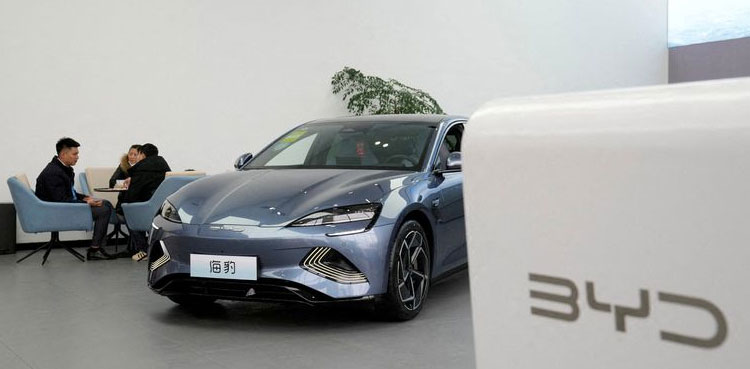
ANKARA: Turkey plans to draw on its geographical position and an EU customs deal to entice Chinese investors keen to access European markets tariff-free, as it recently just did with carmaker BYD.
The Chinese electric vehicle giant signed a billion-dollar deal with Ankara on Monday to open a plant in western Turkey, promising to create 5,000 jobs, a move that will help it dodge new EU tariffs.
The country, at the crossroads between Europe, the Middle East and Central Asia, is in talks with other Chinese companies, Turkey’s Industry and Technology Minister Mehmet Fatih Kacir said this week.
“We want to transform Turkey into a production centre for the next generation of vehicles,” Kacir told private broadcaster Haberturk.
The minister emphasised his country’s selling points, including being part of the EU’s customs union and having trade agreements with 28 countries.
“Chinese producers want rapid access to international markets,” he said. “Investing in Turkey offers them that.”
The EU recently slapped additional provisional tariffs of up to 38 percent on Chinese EVs following an investigation that concluded state subsidies meant they were unfairly undermining European rivals.
But Ankara struck a customs deal with the EU in 1995 that enables the free flow between them of a number of goods, notably cars.
Turkey became one of the leading centres of the world’s automobile industry starting in the 1970s, when major carmakers including Fiat and Renault opened plants there — with others like Ford, Toyota and Hyundai following.
BYD’s Turkish base will allow the Chinese EV specialist to bypass EU tariffs upped by Brussels in July, and enter European markets.
Under new regulations on investment incentives, BYD will be able to circumvent a new 40 percent tariff that Turkey originally imposed on electric vehicle imports. Manufacturers investing in the country will be exempt.
At least five other Chinese carmakers are now considering opening plants in Turkey, state-owned news agency Anadolu reported.
Turkish manufacturer TOGG and Chinese firm Farasis have also partnered up to produce EV batteries in Turkey.
Turkish officials have held numerous meetings with Chinese industrialists in the last year, the industry ministry said.
Turkey’s foreign affairs minister Hakan Fidan visited China in June to seal a new bilateral deal, calling the countries “drivers of Asian wealth.”
from ARY NEWS https://ift.tt/o7fkX3C
No comments:
Post a Comment